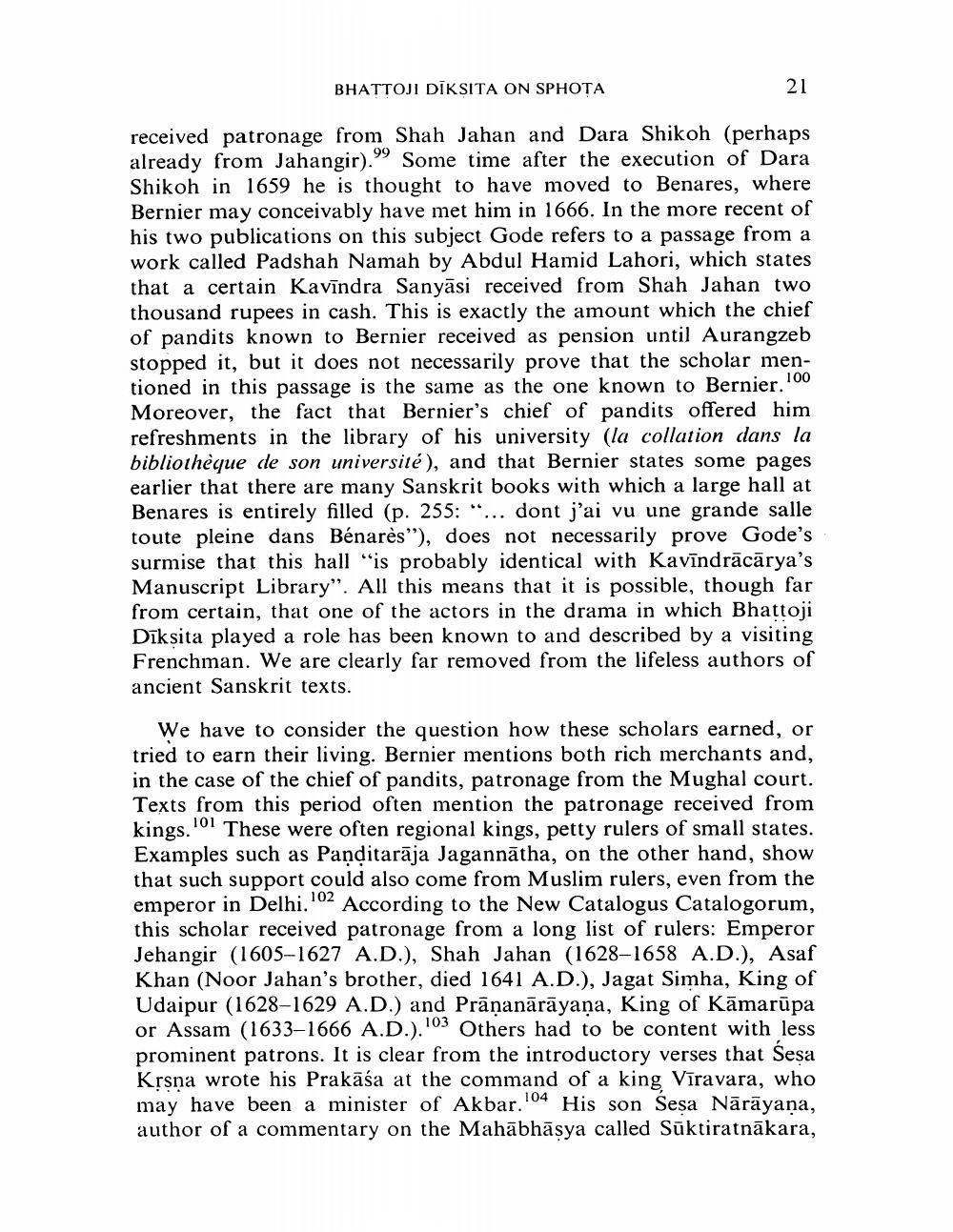________________
BHATTOJI DĪKSITA ON SPHOTA
21
received patronage from Shah Jahan and Dara Shikoh (perhaps already from Jahangir). Some time after the execution of Dara Shikoh in 1659 he is thought to have moved to Benares, where Bernier may conceivably have met him in 1666. In the more recent of his two publications on this subject Gode refers to a passage from a work called Padshah Namah by Abdul Hamid Lahori, which states that a certain Kavīndra Sanyāsi received from Shah Jahan two thousand rupees in cash. This is exactly the amount which the chief of pandits known to Bernier received as pension until Aurangzeb stopped it, but it does not necessarily prove that the scholar mentioned in this passage is the same as the one known to Bernier. 100 Moreover, the fact that Bernier's chief of pandits offered him refreshments in the library of his university (la collation dans la bibliothèque de son université), and that Bernier states some pages earlier that there are many Sanskrit books with which a large hall at Benares is entirely filled (p. 255: "... dont j'ai vu une grande salle toute pleine dans Bénarès”), does not necessarily prove Gode's surmise that this hall "is probably identical with Kavīndrācārya's Manuscript Library”. All this means that it is possible, though far from certain, that one of the actors in the drama in which Bhattoji Dīksita played a role has been known to and described by a visiting Frenchman. We are clearly far removed from the lifeless authors of ancient Sanskrit texts.
We have to consider the question how these scholars earned, or tried to earn their living. Bernier mentions both rich merchants and, in the case of the chief of pandits, patronage from the Mughal court. Texts from this period often mention the patronage received from kings. 101 These were often regional kings, petty rulers of small states. Examples such as Panditarāja Jagannātha, on the other hand, show that such support could also come from Muslim rulers, even from the emperor in Delhi."02 According to the New Catalogus Catalogorum, this scholar received patronage from a long list of rulers: Emperor Jehangir (1605-1627 A.D.), Shah Jahan (1628-1658 A.D.), Asaf Khan (Noor Jahan's brother, died 1641 A.D.), Jagat Simha, King of Udaipur (1628-1629 A.D.) and Prānanārāyana, King of Kāmarūpa or Assam (1633–1666 A.D.).103 Others had to be content with less prominent patrons. It is clear from the introductory verses that Sesa Krsna wrote his Prakāśa at the command of a king Vīravara, who may have been a minister of Akbar.104 His son Sesa Nārāyana, author of a commentary on the Mahābhāsya called Sūktiratnākara,




